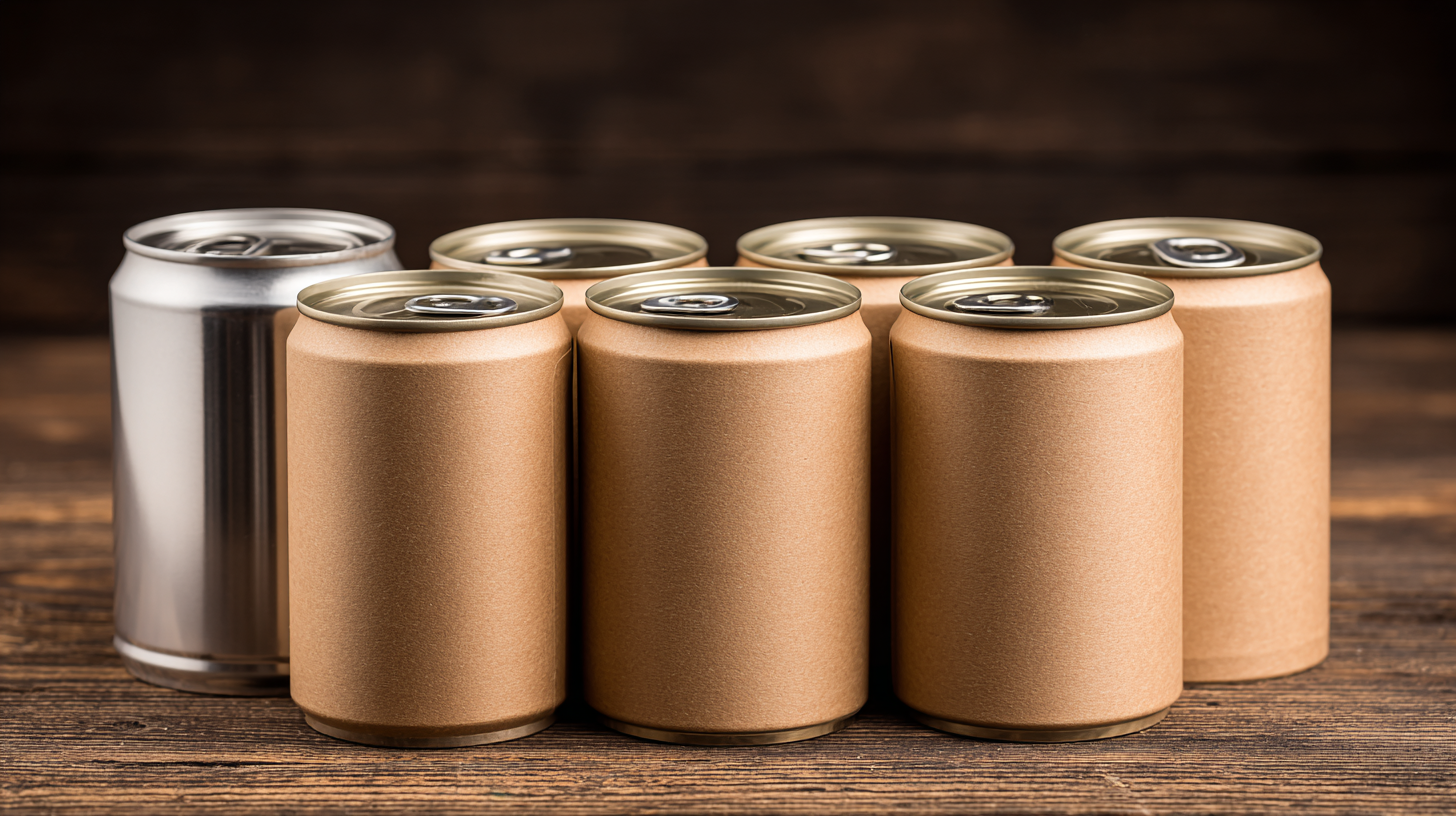 +8618680445103
+8618680445103
Free Standard Samples can be provided for you to check the quality.
Leave Your Message
In today's world, where environmental concerns are at the forefront of consumer awareness, the quest for sustainable packaging solutions has never been more critical. Among the various materials being reevaluated for their eco-friendliness, **empty cans** stand out as a compelling choice. These versatile containers not only offer durability and protection for a wide range of products but also play a significant role in promoting sustainability through recycling and reduced waste. As industries and consumers alike strive to minimize their carbon footprint, understanding why **empty cans** are essential for sustainable packaging is crucial. In this blog, we will delve into five key reasons that underscore the importance of **empty cans** in creating effective, eco-friendly packaging solutions that align with the growing demand for responsible consumption.

Empty cans play a crucial role in sustainable packaging solutions, significantly contributing to the reduction of environmental waste. As workplaces in England now require the separation of waste, empty cans can be efficiently recycled, helping to minimize landfill contributions. When consumers return empty beverage containers, they not only promote recycling but also embrace a circular economy, where materials are reused rather than discarded. Such initiatives highlight the importance of consumer participation in waste management and underscore the value of empty cans in tackling the growing waste crisis.
Tip: To maximize the environmental benefits of recycling, always rinse empty cans before disposal. This simple step ensures that contaminants do not compromise the recycling process. Additionally, consider participating in local container deposit schemes, as they incentivize recycling and help increase the overall recovery rate of materials.
Furthermore, educational campaigns aimed at reducing waste, such as university initiatives, demonstrate the effectiveness of community involvement in promoting sustainability. By raising awareness about the impact of food and packaging waste, these programs can inspire individuals to make more environmentally conscious choices in their daily lives.
Tip: Stay informed about local recycling guidelines and participate in community clean-up events. Engaging with your community not only helps in managing waste but also fosters a collective commitment to sustainability.

Empty cans may often be overlooked as mere waste containers, yet their innovative applications in sustainable packaging present exciting possibilities. One notable use is their role in the circular economy. Rather than discarding empty cans, businesses can repurpose them into packaging solutions, reducing the need for new materials. Companies can utilize these cans creatively to protect fragile items during shipping or as stylish storage for various products, thus minimizing their environmental footprint.

Moreover, empty cans can serve as components in upcycled and eco-friendly designs. For example, artisanal brands are increasingly turning to repurposed cans for eye-catching and sustainable packaging that tells their brand story. These designs not only appeal to eco-conscious consumers but also add a unique aesthetic that sets products apart in a crowded market. Additionally, the metal from these cans can be easily recycled, continuously feeding back into the manufacturing cycle and supporting sustainability efforts. This innovative approach transforms waste into a resource, demonstrating that empty cans can play a crucial role in the future of sustainable packaging solutions.
In today's competitive market, brands are constantly seeking innovative ways to appeal to eco-conscious consumers. One often overlooked solution is the use of empty cans in packaging. Emphasizing the economic benefits, empty cans not only provide a sustainable option but also enhance brand visibility and reduce costs. By choosing cans, companies can position themselves as environmentally friendly, attracting a loyal customer base that values sustainability.
Moreover, empty cans are lightweight and easily recyclable, which significantly lowers shipping and material expenses. This reduction in costs contributes to higher profit margins, allowing brands to invest in other areas such as marketing or product development. Additionally, the durability of cans extends their lifecycle, minimizing waste and further supporting sustainability efforts. Incorporating empty cans into packaging strategies is not merely an eco-friendly choice; it is a savvy economic decision that aligns with the growing trend of conscious consumerism.
Consumer awareness has become a pivotal factor in shaping eco-friendly choices within the packaging industry, particularly regarding the use of empty cans. As more consumers seek sustainable alternatives, the environmental benefits of utilizing empty cans become increasingly evident.
These cans, often made from recyclable materials such as aluminum and steel, contribute to a circular economy that minimizes waste and conserves resources. When consumers are educated about the lifecycle of packaging materials, they tend to favor options that align with their eco-conscious values.
Additionally, the rise of social media has amplified the discourse surrounding sustainable packaging, enabling consumers to share insights about their preferences for empty cans. This heightened awareness encourages brands to prioritize environmentally friendly practices and promote transparency in their packaging choices. As companies respond to this demand, the prevalence of empty cans in the market serves as a testament to the power of informed consumerism, leading to more sustainable production processes and reducing the overall environmental footprint of packaging solutions.
Empty can packaging is gaining traction among brands looking to enhance sustainability in their operations. Companies like Coca-Cola have showcased their commitment to eco-friendly practices by introducing cans made from 100% recycled aluminum. By investing in sustainable sourcing and innovative recycling programs, they not only reduce their carbon footprint but also appeal to environmentally conscious consumers. This bold move reinforces the idea that brands can thrive while prioritizing the planet.
Another remarkable example is the beverage startup, KeHEX, which has built its identity around using empty cans as part of their sustainable packaging initiative. They ensure that every product is packaged in lightweight aluminum cans that are fully recyclable. By teaming up with local recycling facilities, they foster a circular economy that emphasizes reusability and minimizes waste. KeHEX's approach not only underscores their environmental commitment but also resonates with consumers who are increasingly seeking products that align with their values of sustainability.
This chart illustrates the key benefits of utilizing empty cans in sustainable packaging solutions, based on industry-wide data. The categories reflect the percentage impact these benefits have on sustainability efforts.
